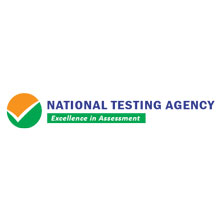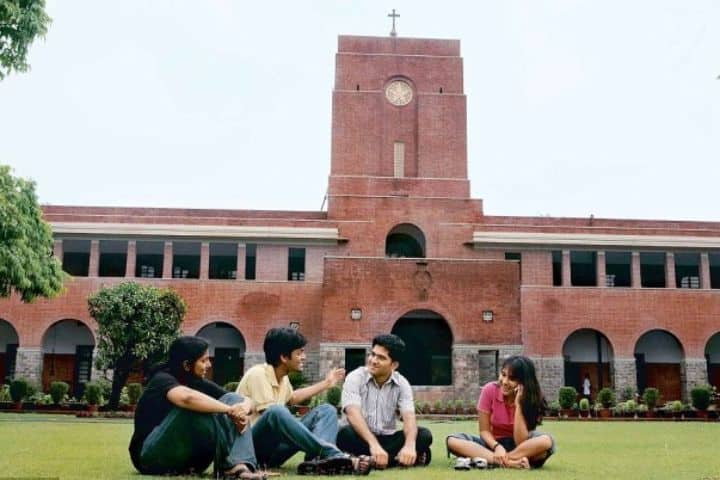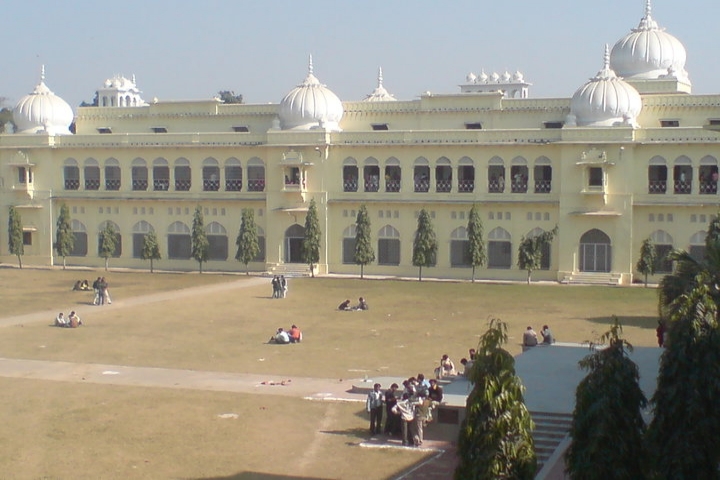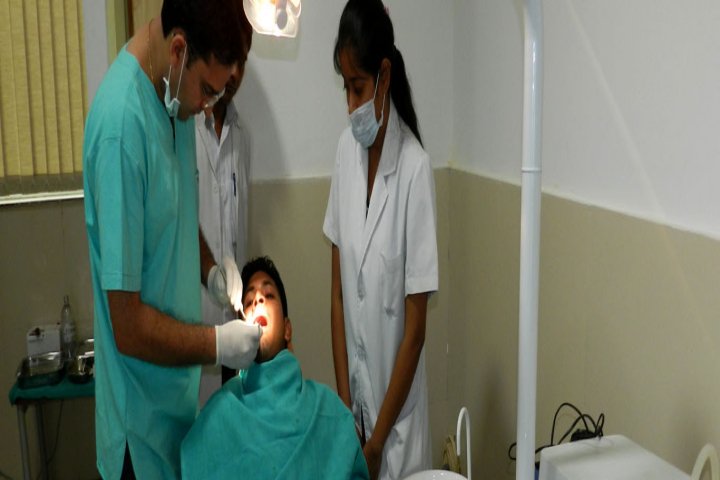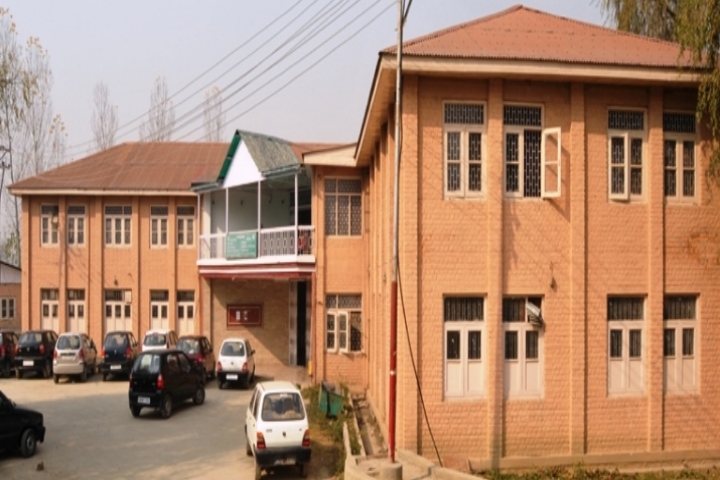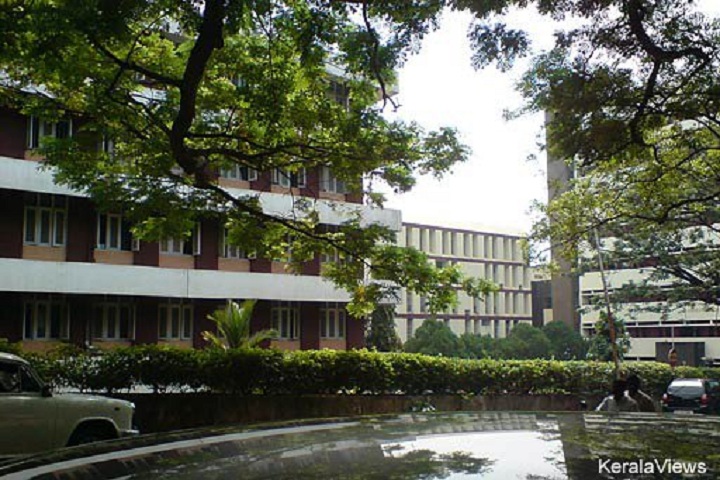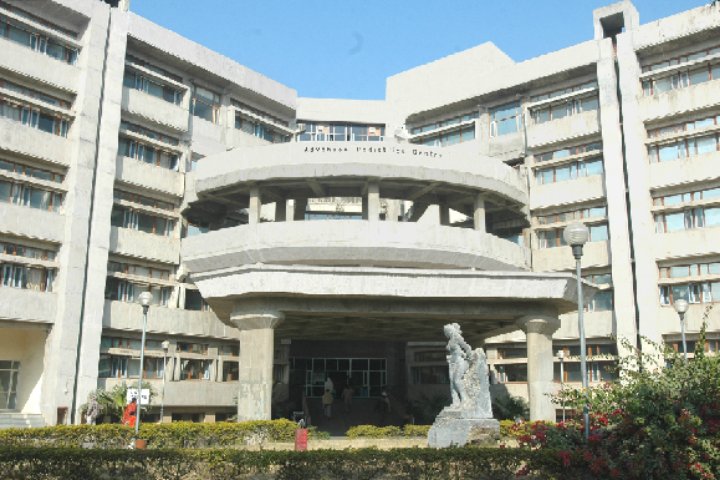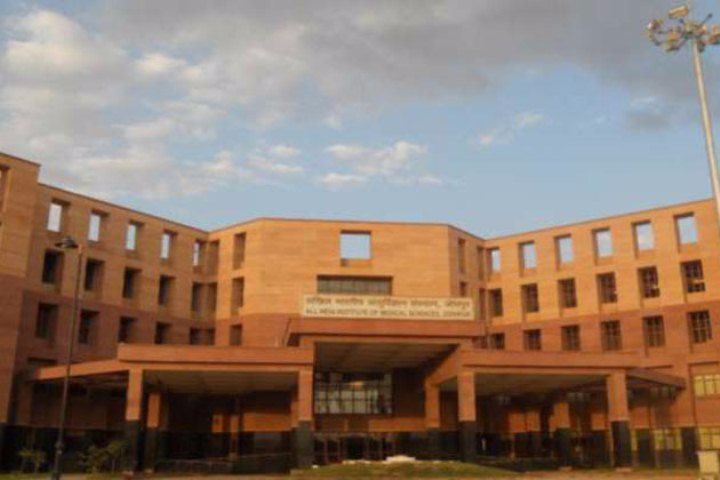
Community Medicine Course Details - Fees, Subjects, Syllabus, Duration, Eligibility, Career Scope
What is Community Medicine
Community medicine is the branch of medicine that deals with healthcare issues that affect the community as a whole. It is also known as social medicine, preventive medicine, public health or community health science. It is concerned with the study of the history of a particular disease in a certain population, the influence of the environment on health and the prevention of diseases that spread at the community level.
Statistically, every year, more people die of diseases like malaria, hypertension, diabetes and diarrhoea than from rare ailments. This is why community medicine, which deals with these common diseases, is so important. This is the reason why public health, which focuses on protecting and improving community health, is so vital. It is intricately related to the well-being and economic prosperity of a nation.
Community medicine as a course is studied as a specialisation at the post-graduate level. One can study M.D in community medicine (Doctor of Medicine in Community Medicine) or a diploma in community medicine. One can also opt for a doctoral degree in community medicine. There is no specialised undergraduate degree for community medicine, but one essentially needs to complete his/her MBBS before opting for the specialisation.
| Particulars | Values |
|---|---|
| Field | Medical Science / Public Health |
| Focus Area | Community health, disease prevention, health promotion, epidemiology |
| Related Degrees | MD, Phd |
| Eligibility Criteria | MBBS + Internship |
| Entrance Exams | NEET-PG / INI-CET |
| Career Options | Public Health Specialist, Epidemiologist, Community Health Officer |
| Average Salary | Rs. 5 LPA to 20 LPA |
| Top Recruiters | Government health departments, WHO, UNICEF, NGOs, and research bodies |
Top Colleges in India offering Community Medicine-related Courses
Here is a list of top colleges in India offering Community Medicine-related courses, including MD in Community Medicine, Diplomas, and Public Health or Preventive & Social Medicine programs:
| Colleges | Fees |
|---|---|
| Rs. 60,320 | |
| - | |
| Rs. 6.60 Lakhs | |
| - | |
| Rs. 57,440 | |
| Rs. 37.50 Lakhs |
Top Private Colleges in India offering Community Medicine-related Courses
Here is a list of the Top Private Medical Colleges in India offering Community Medicine-related courses, primarily the MD in Community Medicine or Preventive & Social Medicine (PSM) and Master of Public Health (MPH):
| Colleges | Fees |
|---|---|
| Rs. 7.80 Lakhs | |
| Rs. 3.50 Lakhs | |
| Rs. 5.76 Lakhs | |
| - | |
| - | |
| Rs. 15 Lakhs | |
GITAM Institute of Medical Sciences and Research, Visakhapatnam | Rs. 5.54 Lakhs |
Top Government Colleges in India offering Community Medicine-related Courses
Here is a list of the Top Government Medical Colleges in India offering Community Medicine-related courses, such as MD in Community Medicine or Preventive & Social Medicine (PSM), Master of Public Health (MPH), and related diplomas or PhDs.
| Colleges | Fees |
|---|---|
| Rs. 97,500 | |
| Rs. 1.08 Lakhs | |
| Rs. 1.92 Lakhs | |
| Rs. 3.12 Lakhs | |
| - | |
| Rs. 43,580 |
Eligibility Criteria (UG & PG) of Community Medicine
Here is the detailed eligibility criteria for both MD and PhD in Community Medicine (or related Public Health disciplines) in India. PhD programs are offered in Community Medicine, Preventive & Social Medicine, Public Health, and Epidemiology.
MD in Community Medicine – Eligibility Criteria
| Eligibility Criteria | Details |
|---|---|
| Educational Qualification | MBBS from a medical college |
| Internship | Completion of a 1-year compulsory rotating internship before admission |
| Registration | Permanent/Provisional registration with the State Medical Council or NMC |
| Entrance Exam | Must qualify NEET-PG with the required percentile |
PhD in Community Medicine / Public Health – Eligibility Criteria
| Eligibility Criteria | Details |
|---|---|
| Educational Qualification | MD in Community Medicine or Master's degree in a relevant field such as MD/MS, MPH, M.Sc in Epidemiology/Medical Sciences/Public Health |
| Minimum Marks | Usually 55% aggregate marks (5% relaxation for SC/ST/OBC/PH) |
| Interview | Must clear a personal interview or research proposal presentation |
| Research Proposal | Submission of a detailed research synopsis during the application |
Entrance Examinations for Both UG and PG Community Medicine Courses
There are many entrance examinations that a medical aspirant can opt to appear for. The examinations vary with the level and the institute one aspires to get admission in (sometimes). Entrance to both the postgraduate degree and PhD in community medicine is merit-based. Subsequently, colleges conduct an interview after which the candidates are shortlisted.
| Exam Name | Conducting Body | Cutoff |
|---|---|---|
| NEET-PG | National Board of Examinations (NBE) | NEET-PG Cutoff |
| INI-CET | AIIMS, New Delhi | INI-CET cutoff |
| CSIR UGC NET | NTA | CSIR UGC NET cutoff |
College Predictors VIEW ALL
Scope of Community Medicine in India and Abroad
Community medicine in India as already discussed has varied scopes. One can start his/her career with the government institutions which have a handsome pay scale for the doctors. Enough job security is provided for an individual employed in a central or state government organisation. Individuals can join multiple hospitals in the private sector as visiting doctors and charge on an hourly basis. They can also do private practice from their own clinic and be roaring practitioners. Postgraduates are hired in various departments like the research department, teaching department, etc.
Potential candidates can also decide to write the UPSC examination for setting up a career in civil service or opt for DNB, DM, M.Phil, PhD or even MBA by clearing respective entrance tests.
One can join United Nation organisations like WHO (World Health Organization), UNICEF (United Nations International Children’s Emergency Fund), UNDP (United Nations Development Program), UNHCR (United Nations High Commissioner for Refugees) e.t.c. These organisations provide amazing career opportunities to an individual with a vast array of exposure to practical problems in the field thus allowing the individual to increase their knowledge and work experience.
Course Fees Community Medicine
| Minimum Fees | Maximum Fees | |||
|---|---|---|---|---|
| Private | Government | Private | Government | |
| UG | ||||
| PG | ||||
| DOCTORAL | ||||
| DIPLOMA | ||||
Course Subjects
The syllabus varies according to the community medicine degree an individual is pursuing. Here is a detailed overview of the MD in Community Medicine syllabus at SRM University (SRMIST, Kattankulathur) based on the latest available curriculum & national guidelines. The main subjects for the different courses are as follows-
| History of Public Health | Health Legislation |
| Concepts in Public Health | Urban Health |
| Primary Health Care | Principles of Educational Science and Technology |
| The Health Care Systems in India | Principles and Practice of Information, Education and Communication |
| Role of Social and Behavioural Sciences in Health | Principles of Nutrition and Applied Nutrition |
| Environmental Health | Medical Entomology |
| Communicable diseases: Epidemiology, prevention & control | Epidemiology of Chronic Non-communicable Diseases and Conditions |
| Rehabilitation Services | National Health Programs |
| Principles of Tropical Medicine | Maternal and Child Health Care |
| Demography and Family Welfare Services in India | Genetics and Health |
| Social Paediatrics and School Health Services | Biostatistics |
| Principles and Application of Epidemiology | Research Methodology |
| Community Mental Health | Occupational Health |
| Health Care of Special Groups | Voluntary Sector in Health |
| Health Care Management | Health Information System. |
| Disaster Management and Public Health Emergencies | Biomedical waste management and infection control |
| Medical Ethics | Essential Drugs and Rational use of drugs |
| Practicals | - |
Careers in Community Medicine
Job prospects vary accordingly with the levels stated above. After completion of M.D in community medicine, one can get into government institutions. They can sit for the UPSC examinations which are for the civil service professions. They can apply in public healthcare facilities, railways, or get empanelled in government organisations such as banks, insurance companies, etc. A person with an M.B.B.S or MD degree can set up his/her clinic and start a private practice. Doctors who are specialists in community medicine can also do jobs in private sector hospitals and nursing homes.
After completing a PhD in community medicine one can get into research fields. They can also get into the teaching field by becoming professors and lecturers. They can also get into writing fields. For detailed information on specific jobs in community medicine, scroll down.
Upcoming trends
With the increasing population, the usage of machine learning and Artificial Intelligence (AI) comes into play. This offers efficient ways to diagnose diseases and their symptoms, develop effective treatment protocols, monitor the spread of epidemics and pandemics, conduct clinical trials, and make surgeries more doctor and patient-friendly and more efficient. Synergistic robots such as 'da Vinci' surgical robot is assisting doctors in the operation theatres. Without a doubt, robots will soon take over a lot of manual jobs in the healthcare sector. Already, doctors are taking the help of telepresence robots to treat patients. Automated labs, prosthetics, micro-bots and other applications of robotics will become the mainstay of medical engineering.
Telemedicine is another area of growth. Multinational healthcare organisations have started to use telemedicine for expanding. Newer technologies focus on customer relationship management.
One subject that is driving the progress in all branches of life sciences and medicine is genetics. The advancements in the field are reflecting on pharmacology, oncology, infections disease management and more. Research in fields like graft rejection, cystic fibrosis, cancers and virology are making commendable progress.
Trends in community medicine reflect on society as a whole. With every progress and advancements made, it benefits the mass as a whole.
Job Profiles and Top Recruiters
After completing the course, candidates work in the urban and rural health sector and conduct immunisation drives, maternal-child health programs, disease awareness, and sanitation planning. Candidates also focus on preventive and promotive rather than curative care. Here are the top job profiles and descriptions for MD in Community Medicine graduates in India and globally:
| Job Profiles | Descriptions |
|---|---|
| Community Medicine Specialist | A community medicine specialist manages disease prevention, health promotion, and public health services at the community or state level. |
| Public Health Consultant | A public health consultant advises on public health policies, program design, monitoring, and evaluation for government or NGOs. |
| Epidemiologist | An epidemiologist studies disease patterns, conducts outbreak investigations, and plans preventive strategies. |
| Health Programme Manager | A health programme manager leads and coordinates national and international health projects (e.g., immunisation, nutrition, NCD control). |
| Medical Officer | A medical officer works in government departments overseeing health schemes, immunisation, and rural/urban health centres. |
| Biostatistician / Data Analyst | A biostatistician or data analyst uses data to interpret health trends, conduct clinical research, and support public health decisions. |
| Health Policy Analyst | A health policy analyst evaluates and helps develop health policies; often employed by think tanks, the WHO, or NITI Aayog. |
| Academic Professor / Faculty | An academic professor teaches MBBS/MD students, conducts research, and mentors community health projects in medical colleges. |
Community Medicine: Top Recruiters
- Indian Council of Medical Research (ICMR)
- Indian Railway Medical Services
- State Public Service Commission
- Fortis Healthcare
- MAX Healthcare
- Apollo Hospitals
- National Rural Health Mission
- AIIMS (All India Institute of Medical Science)
- Government medical colleges
- Military healthcare institutes
- United Nations Children’s Fund (UNICEF)
- Non-Governmental Organisations (NGOs) such as CRY, CINI, PATH, CARE International
Globally, this branch deserves a lot more attention than it gets now. The day every global citizen gets quality health service at their doorstep, community medicine, in its true meaning, will be victorious that day.
Average Salary
The salary of individuals holding a postgraduate degree in community medicine ranges from Rs. 2-20 lakhs per annum. Individuals holding an M.D degree in community medicine have their earnings in the range of Rs. 4-24 lakhs per annum. Individuals who are into private practice and associated with flourishing private hospitals have their income on the higher end. With a PhD in community medicine, a doctor earns a pay scale of Rs. 1-3 lakh rupees per month.
| Job Profiles | Average Salary |
|---|---|
| Community Medicine Specialist | Rs. 25 LPA |
| Public Health Consultant | Rs. 7.9LPA |
| Epidemiologist | Rs. 7.9LPA |
| Medical Officer | Rs. 6.9LPA |
| Research Scientist | Rs. 9.6LPA |
| Occupational Health Physician | Rs. 19.6LPA |
Source- AmbitionBox
Required Skillset for Community Medicine
Communication- Written and verbal communication skills are vital. Community medicine doctors may have to work at grassroots levels. So, it is important for them to be able to convey all information with absolute clarity.
Life balance- A good sense of work-life balance ensures optimum productivity for healthcare professionals. They have to work for long hours and sometimes, at remote locations or in difficult situations. So, it is important that they don’t get fatigued easily.
Strong listening ability- Community medicine doctors must be good listeners as they have to work with the mass. So, they must have enough patience to listen to people about their health problems and advise accordingly.
Prioritizing caregiving and patients- This goes without saying. A doctor no matter what his area of specialisation is must put his duty and patient first. Compassion is all that makes caregiving and treatment more effective.
Time management- To handle hundred patients in a row- either at the hospital outpatient department or village health centre, a doctor must have superb time management skills. It develops with practice and time itself.
Course Curriculum for Community Medicine
The course curriculum for community medicine is as follows-
Concepts in health- definition, appreciation of health as a relative concept, determinants of health, National Health Policy (NHP), difficulties in measurement of the of health, and the indices used. Properties of agent, host and environmental factors health, diseases and multifactorial etiologies of diseases, prevention, the health situation in India: demography, mortality, morbidity profile and existing health facilities in health services.
Epidemiologist- Use of epidemiological tools, definition, concept, role in diseases and health, the natural history of the disease and its application, mode of transmission, measures for prevention and control of communicable and non-communicable diseases, need and use of screening tests, common statistical tools for analysis, interpretation and presentation of data, measures of central tendency, application of computers in epidemiology.
Epidemiology of specific diseases- Infective hepatitis, ARI, T.B., malaria, filariasis, STDs and AIDS, diarrhoeal diseases, kala-azar, mental health, coronary artery disease, blindness, hypertension, leprosy, accidents, JE, VPDs, plague, chickenpox, etc.
Biostatistics- Scope and use, analyzing and interpreting data, making comparisons, collection and presentation of data.
Entomology- Vectors of diseases, management of insecticide toxicity, identifying characteristics and mode of vector-borne diseases, methods of vector control and mode of commonly used insecticide.
Environmental sanitation- awareness of relation with the environment, safe and wholesome water, safe disposal of human excreta.
Reproductive and child health- special services for women and children, mortality and morbidity in these groups, local customs practised during pregnancy, childbirth, lactation; safe motherhood, integrated child development, immunization, national policy in children, the role of genetics in community health, genetic counselling at primary care level, organisation and implementation of programmes for mother and children.
Demography and family planning- Definition, demographic cycle and their effect on the population, MTP Act, guidelines for MTP and infertility services, recent advances in contraception, national population policies, principles of counselling, need for population control measures.
Health planning and management- Definitions of different terms, components of health care delivery, familiarity with management techniques, components of health care delivery, general principles of health economics and various techniques of health management.
Nutrition- Role of nutrition in health and diseases, common sources of nutrients, specific nutritional requirements, national nutritional policy, food adulterations, national programmes in nutrition, common nutritional disorders.
Sociology- Conduction of clinical-social evaluations of individuals, development of a good doctor, impact of urbanization on health and diseases.
School health- Problems of school and adolescence, objectives of school health programme, activities of the school programme.
Occupational health- Identification of physical, chemical and biological hazards to which workers are exposed, associated history of symptoms, diagnostic criteria of occupational diseases, various legislations in relation to occupational health, employees state insurance scheme.
Health education- Communicate with individuals, family and community using tools and techniques, principles, methods and evaluation of health education.
Urban health- Common health problems of urban slum dwellers, organisation of health services for slum dwellers.
Popular Community Medicine Entrance Exams in India
Frequently Asked Questions (FAQs)
Question: What is the scope of community health and preventive medicine?
Answer :
The career choices available in community medicine are varied and numerous. Based on the degree and experience, community medicine practitioners can join the healthcare sector (public or private) and allied fields as health interns, physicians, epidemiologists, consultants, researchers, professors, or health educators. Non-governmental organisations employ community medicine experts in large number. With more emphasis being given on inclusive social development and growth, the scope of community medicine is expected to grow further in the years to come.
Question: Why is community medicine important?
Answer :
Community medicine forms the very base of the healthcare system. It aims at the promotion of health and fitness in a community. Prevention of chronic diseases is its main goal. This is of prime importance to a community.
Question: What makes a community healthy?
Answer :
A healthy community is one which has access to quality healthcare at their doorsteps. They are free from chronic diseases like diabetes, heart disease, etc.
Question: What is MD community medicine?
Answer :
MD in community medicine is a super specialisation course pursued at postgraduate level. Doctor of Medicine in community medicine is a three-year course concerned with diseases affecting a community as a whole.
Question: Is community medicine a clinical subject?
Answer :
Community medicine is not specifically a clinical speciality subject. It is clinical when the doctors of community medicine provide service in hospitals and clinics. It is better to say that community medicine is a para-clinical speciality.



